Russian team takes UCI to court over ban
Banned team Gazprom-RusVelo awaits verdict from the Court of Arbitration for Sport


The management of the former second-tier Russian team Gazprom-RusVelo are optimistic of winning an unprecedented court case against cycling’s governing body the UCI, after alleging that they were shut down without a justified reason last spring.
Five days after Russia’s invasion of Ukraine on 24 February, 2022, the UCI announced that all Russian and Belarusian teams would be suspended with immediate effect.
Gazprom-RusVelo looked elsewhere for replacement sponsors in an effort to continue racing, and even offered to compete in plain white jerseys.
But on 27 March the team’s general manager, Renat Khamidulin, admitted defeat and began the process of winding down the team, leading to the redundancies of 21 riders and dozens of staff. To date, only 11 riders have found new teams, and only one of the nine Russian riders.
The drama, however, did not stop there. On 1 September the team began legal proceedings against the UCI at the Court of Arbitration for Sport (CAS) claiming that their suspension from operating “was a political decision” only, and that “there was no logic in it”.
“It’s about how legal the decision was, and if the management of the UCI made the decision according to their emotions or because they wanted to do something in favour of the International Olympic Committee’s [IOC] recommendations,” Khamidulin explained to Cycling Weekly via a translator. “Was it legal? Was it fair?
“We wanted to participate in a completely white team kit with no sponsors. That would have been a real display for a new potential sponsor but this idea was rejected by the UCI. We clearly understood that it was about destroying our organisation.”
Get The Leadout Newsletter
The latest race content, interviews, features, reviews and expert buying guides, direct to your inbox!
Expanding on his reasoning, Khamidulin pointed to the team’s past actions by claiming that they have always paid salaries on time and that they have never ended up in court; however, between 2013 and 2015 they had five riders sanctioned due to doping but never since.
“We were one of the few teams in the peloton that met all of the riders' obligations during the Covid pandemic, and there was not one moment in 10 years that there was a delay in salary. There were also zero cases in court,” he said.
“But unfortunately what I understand is that the UCI is not really interested in these aspects. From their statements they say about the importance of financial structures and bank guarantees, but all this is a bluff. It’s a pity that it’s not important for the UCI to have such a transparent organisation that never had issues. Our whole structure and the whole team was really just thrown away.”
A date for CAS’s decision has not yet been set, but similar cases involving other sports have usually had a result after six months, meaning that both parties are expecting the decision imminently.
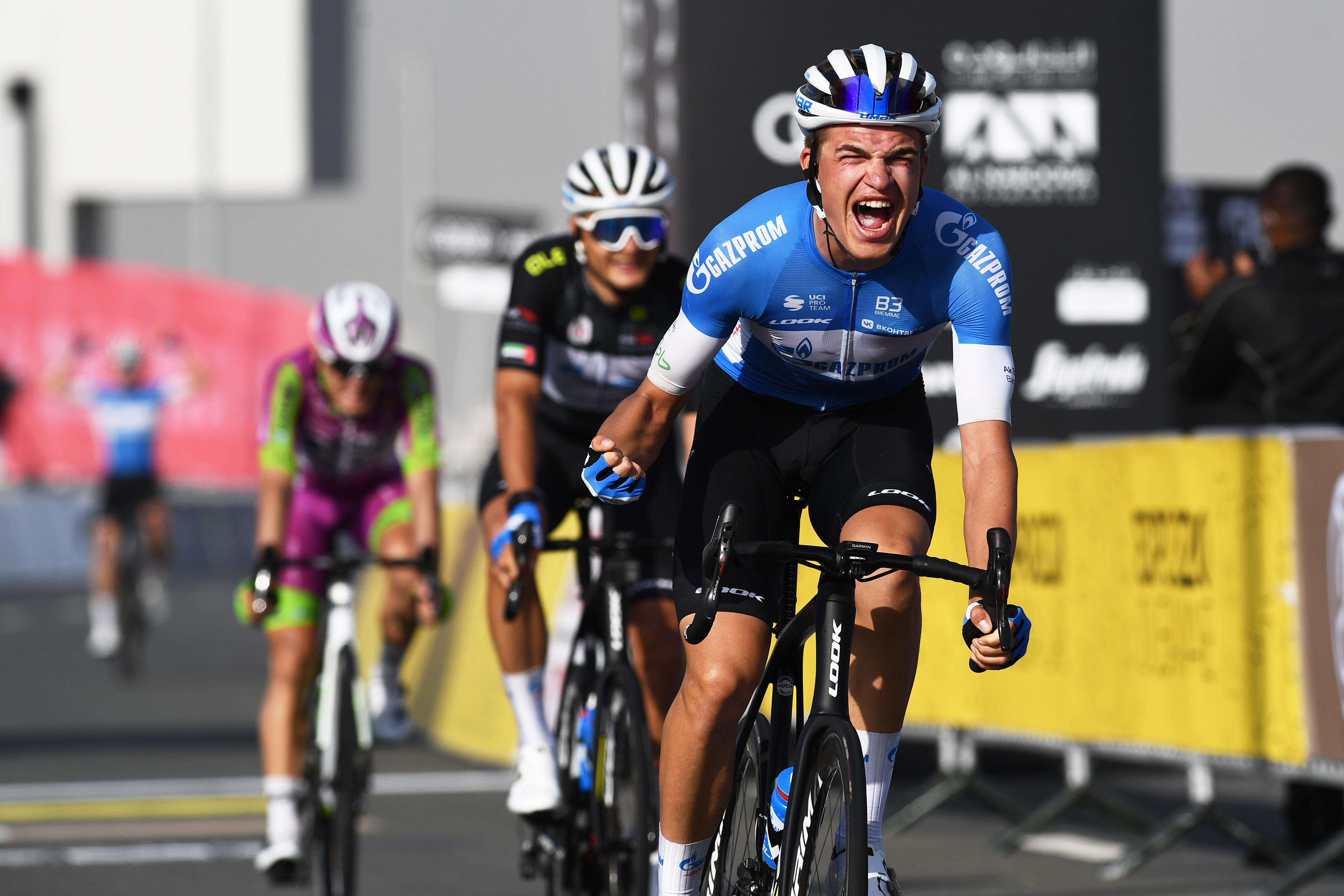
Mathias Vacek was one of 21 riders to lose their jobs.
The team - whose principal sponsorship came from the German arm of Russia’s majority-state owned largest public business - are not seeking “really huge sums of money”. Cycling Weekly understands that any compensation should they win will amount to a six-figure sum; the team’s annual budget was around €5 million.
“It’s mostly taking into account the whole structure that we had with a lot of contracts, liabilities, transfer leasing,” Khamidulin continued. “These losses in eight months were somehow covered and negotiated; if the CAS decision is in favour of the ex-team then it will cover that.”
Although there is no previous case to base a decision on, Khamidulin is confident that the Swiss court will rule in Gazprom’s favour. “The advocate [Ed - lawyer] who we are working with shares the same thoughts and opinions as us about the case, and this is not the first time he has appealed against the UCI. In some cases, he has won, too.”
The UCI defended their handling of the process in a lengthy statement last May (the UCI declined to comment for this story), claiming that it offered a viable route to continue racing and assisted the team and its riders at all times.
Khamidulin disputed the latter saying that there was limited dialogue, consisting of a single email and one meeting in Switzerland, but did explain that the UCI proposed that the team could drop to the third-tier Continental level with a new sponsor.
“That was a weak suggestion,” Khamidulin said. “That’s how I see it. Of course you can continue competing like that, but you don’t need a lot of money and you can pay riders less. We shouldn’t forget that riders had spent 15 years on a bike and their dream was not to earn €300 to €500 a month riding at a Continental level.”
Khamidulin is now awaiting the decision from CAS and has also set his sights on reentering the peloton with a joint Russian, Belarusian and Ukrainian team in what would be a “smaller project”.
The legal entity behind the Gazprom-RusVelo team is still in operation and Khamidulin said that he has taken some actions towards making his dream a reality; the current situation on the battlefield, though, makes the prospect unlikely any time soon.
“What I’d really like to do is to provide a chance for athletes from Russia, Belarus and Ukraine to come to the elite level of cycling,” he said. “It would remind the UCI management what sport is about: unity and being competitive.”

Thank you for reading 20 articles this month* Join now for unlimited access
Enjoy your first month for just £1 / $1 / €1
*Read 5 free articles per month without a subscription

Join now for unlimited access
Try first month for just £1 / $1 / €1
A freelance sports journalist and podcaster, you'll mostly find Chris's byline attached to news scoops, profile interviews and long reads across a variety of different publications. He has been writing regularly for Cycling Weekly since 2013. In 2024 he released a seven-part podcast documentary, Ghost in the Machine, about motor doping in cycling.
Previously a ski, hiking and cycling guide in the Canadian Rockies and Spanish Pyrenees, he almost certainly holds the record for the most number of interviews conducted from snowy mountains. He lives in Valencia, Spain.
-
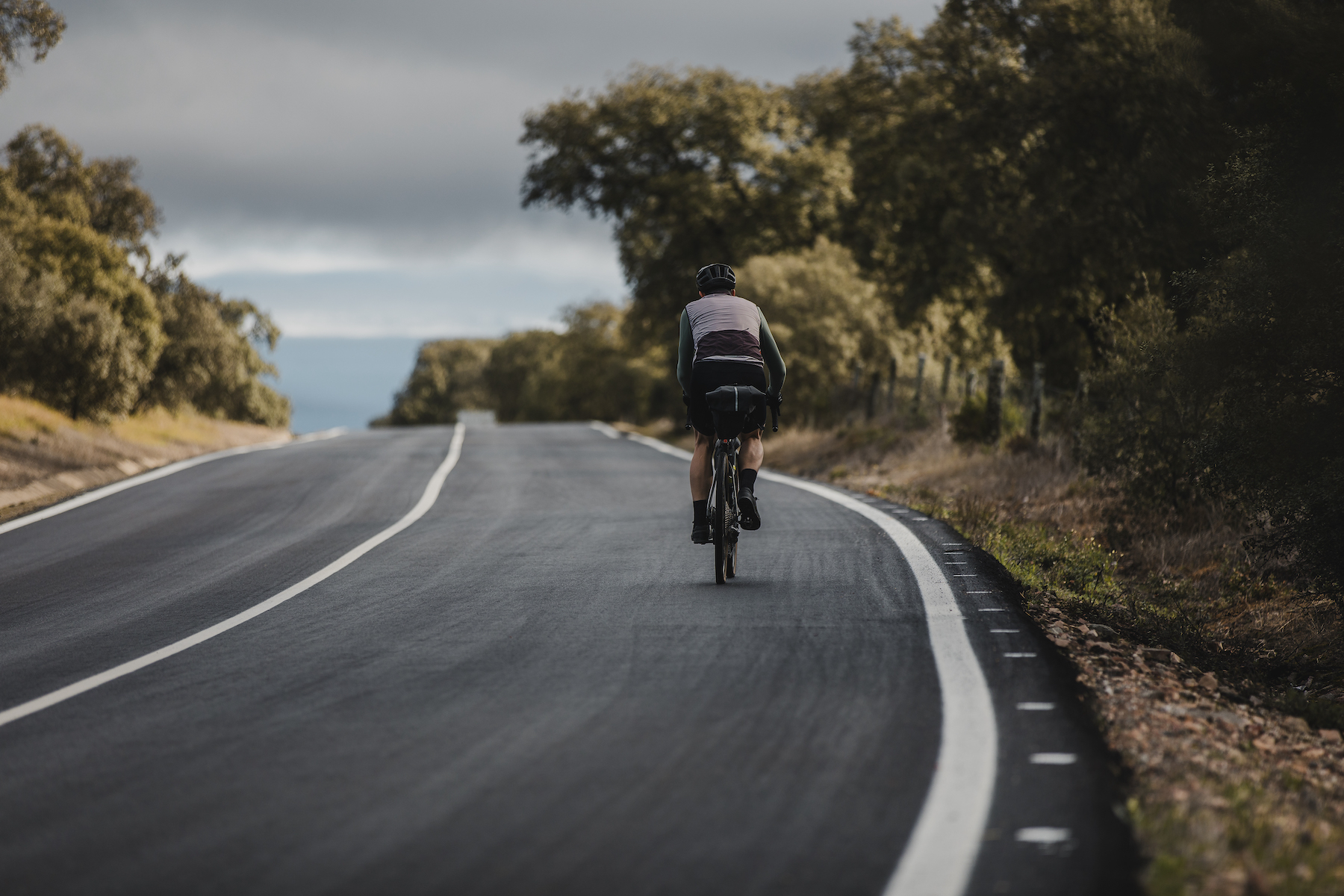 'This is the marriage venue, no?': how one rider ran the whole gamut of hallucinations in a single race
'This is the marriage venue, no?': how one rider ran the whole gamut of hallucinations in a single raceKabir Rachure's first RAAM was a crazy experience in more ways than one, he tells Cycling Weekly's Going Long podcast
By James Shrubsall
-
 Full Tour of Britain Women route announced, taking place from North Yorkshire to Glasgow
Full Tour of Britain Women route announced, taking place from North Yorkshire to GlasgowBritish Cycling's Women's WorldTour four-stage race will take place in northern England and Scotland
By Tom Thewlis
-
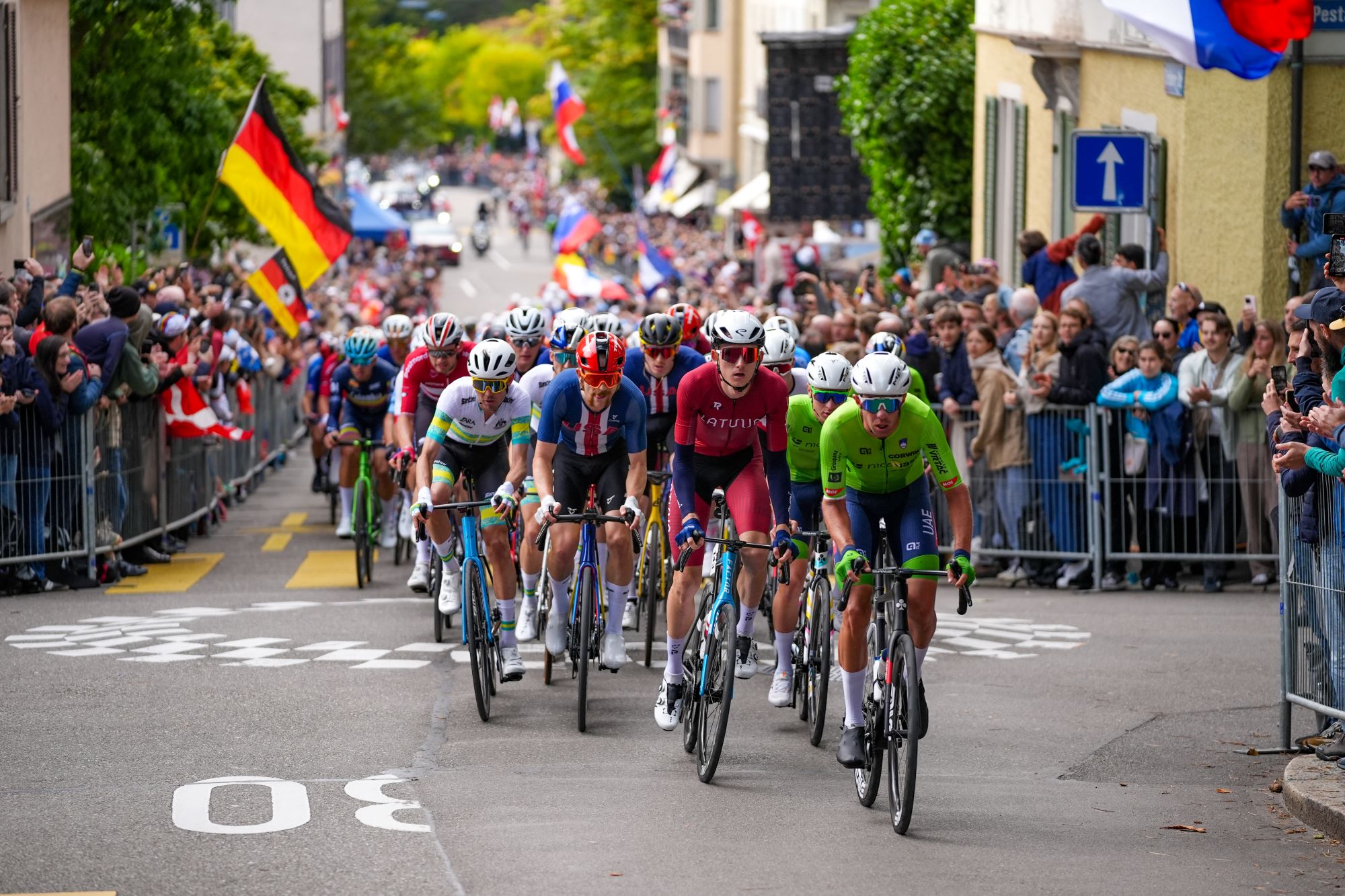 UCI president says there is 'no plan B' for Rwanda World Championships after European Parliament calls for cancellation over conflict
UCI president says there is 'no plan B' for Rwanda World Championships after European Parliament calls for cancellation over conflictThe Road World Championships are due to be held in Kigali this September, but Rwanda is involved in armed conflict in the neighbouring DRC
By Tom Thewlis
-
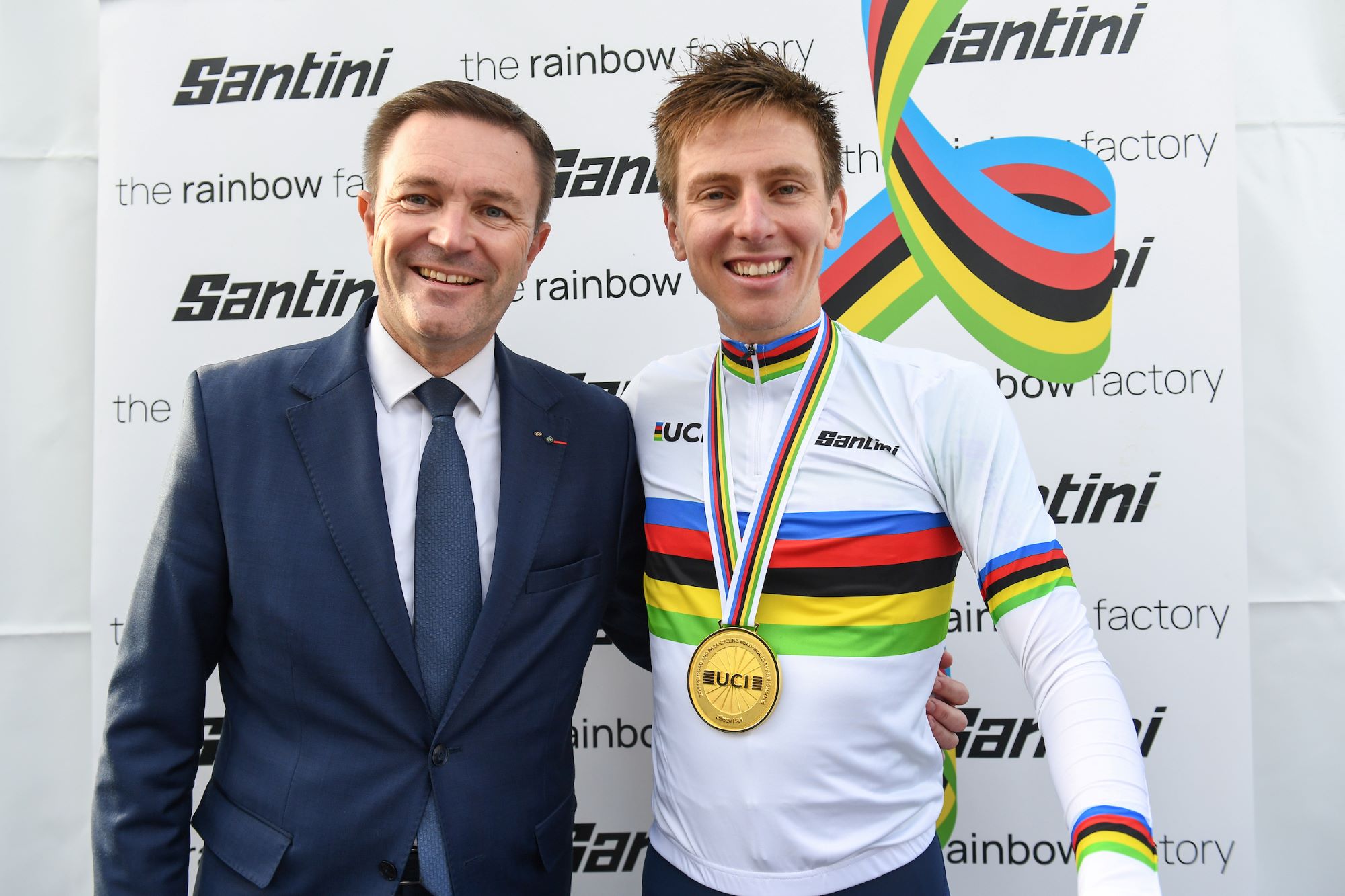 No change to Rwanda World Championships planned after violence breaks out on border with DR Congo, UCI says
No change to Rwanda World Championships planned after violence breaks out on border with DR Congo, UCI saysWorld governing body 'closely monitoring' situation in east Africa with showpiece event set to visit Rwanda in September
By Tom Thewlis
-
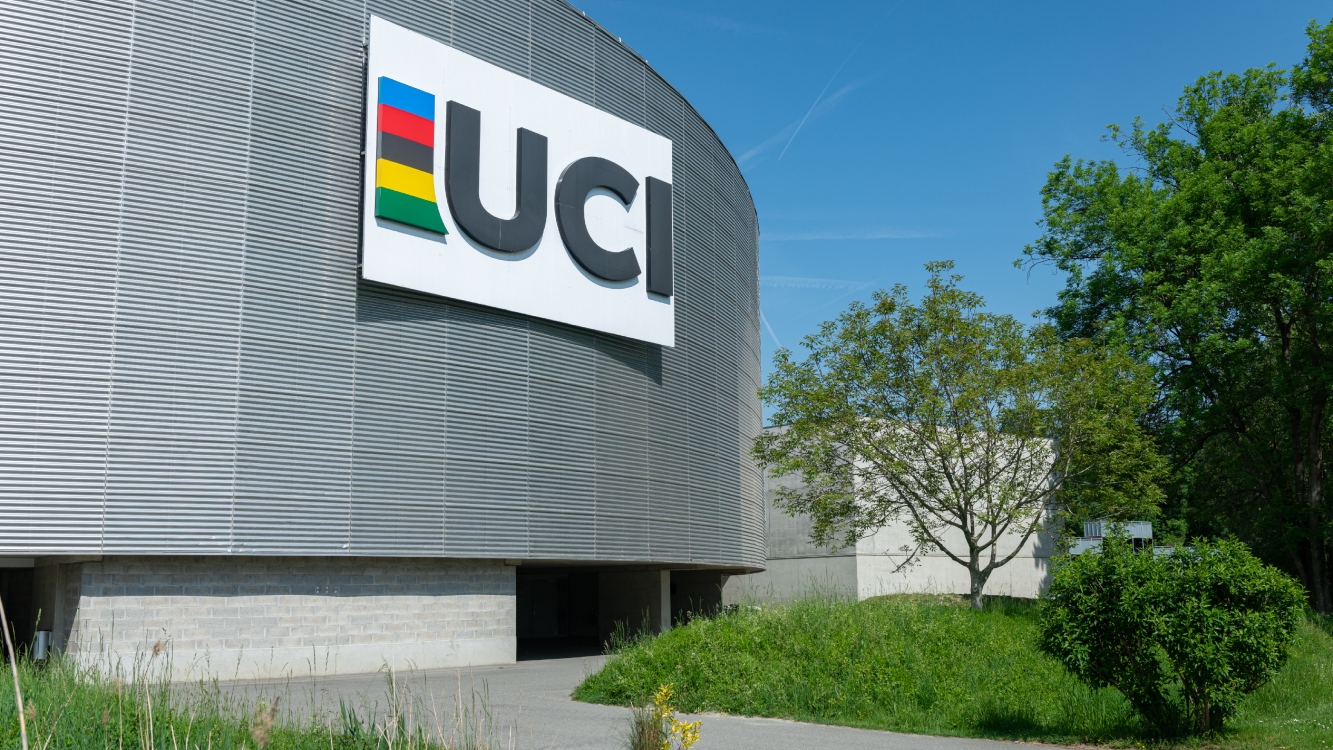 UCI confirm investigation launched into 'unapproved' frameset used by Saint Piran
UCI confirm investigation launched into 'unapproved' frameset used by Saint PiranBritish team glued fake UCI compliance labels to open mould frames purchased from far east
By Tom Thewlis
-
 Have information about motor doping in cycling? The UCI will now pay you
Have information about motor doping in cycling? The UCI will now pay youThe UCI hopes that informants and whistleblowers will increase their knowledge of "new and innovative – and hard to detect – technology in bikes."
By Chris Marshall-Bell
-
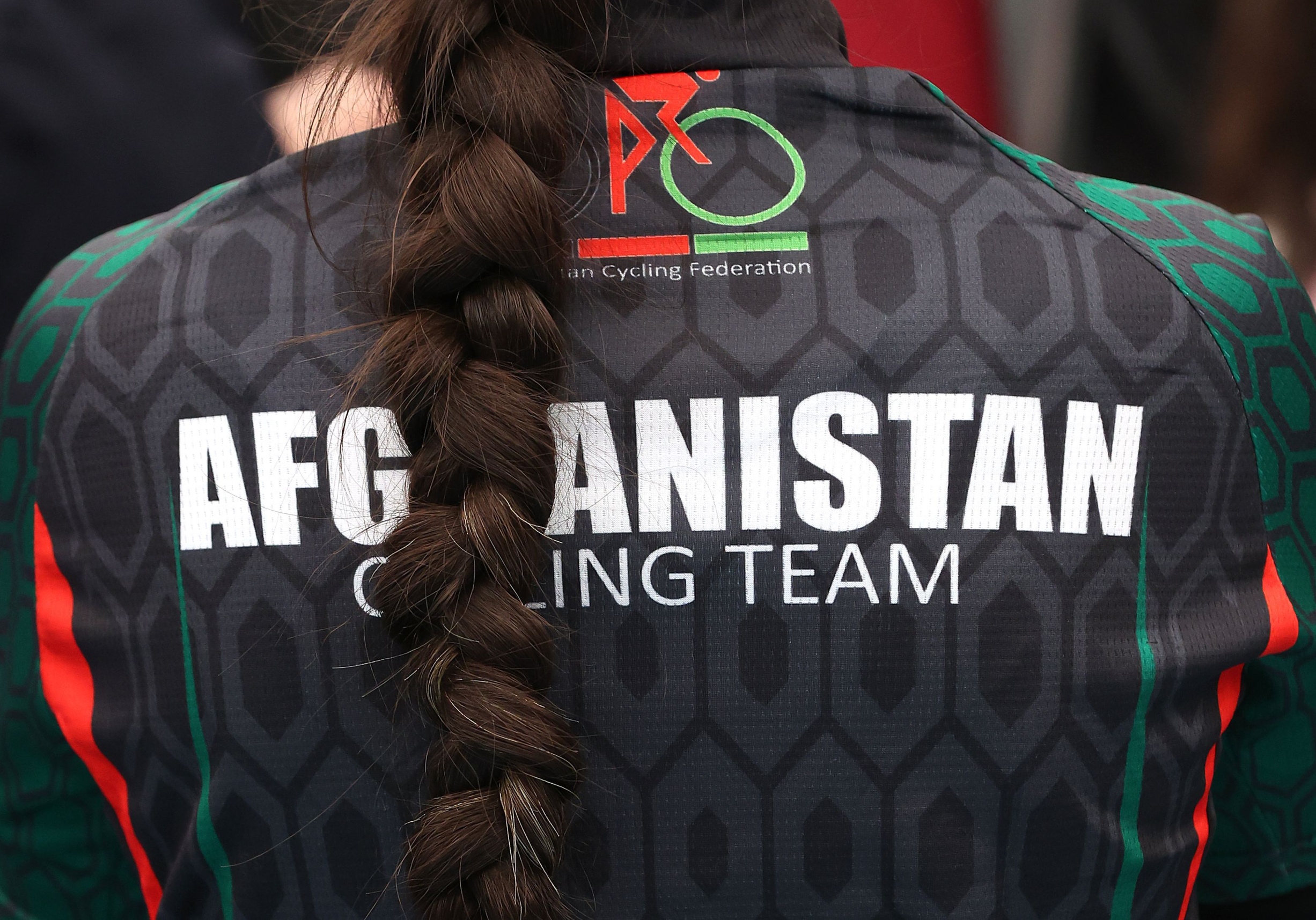 Afghan Cycling Federation president suspended over 'abusive' messages
Afghan Cycling Federation president suspended over 'abusive' messagesUCI bans Fazli Ahmad Fazli following almost three-year investigation
By Tom Davidson
-
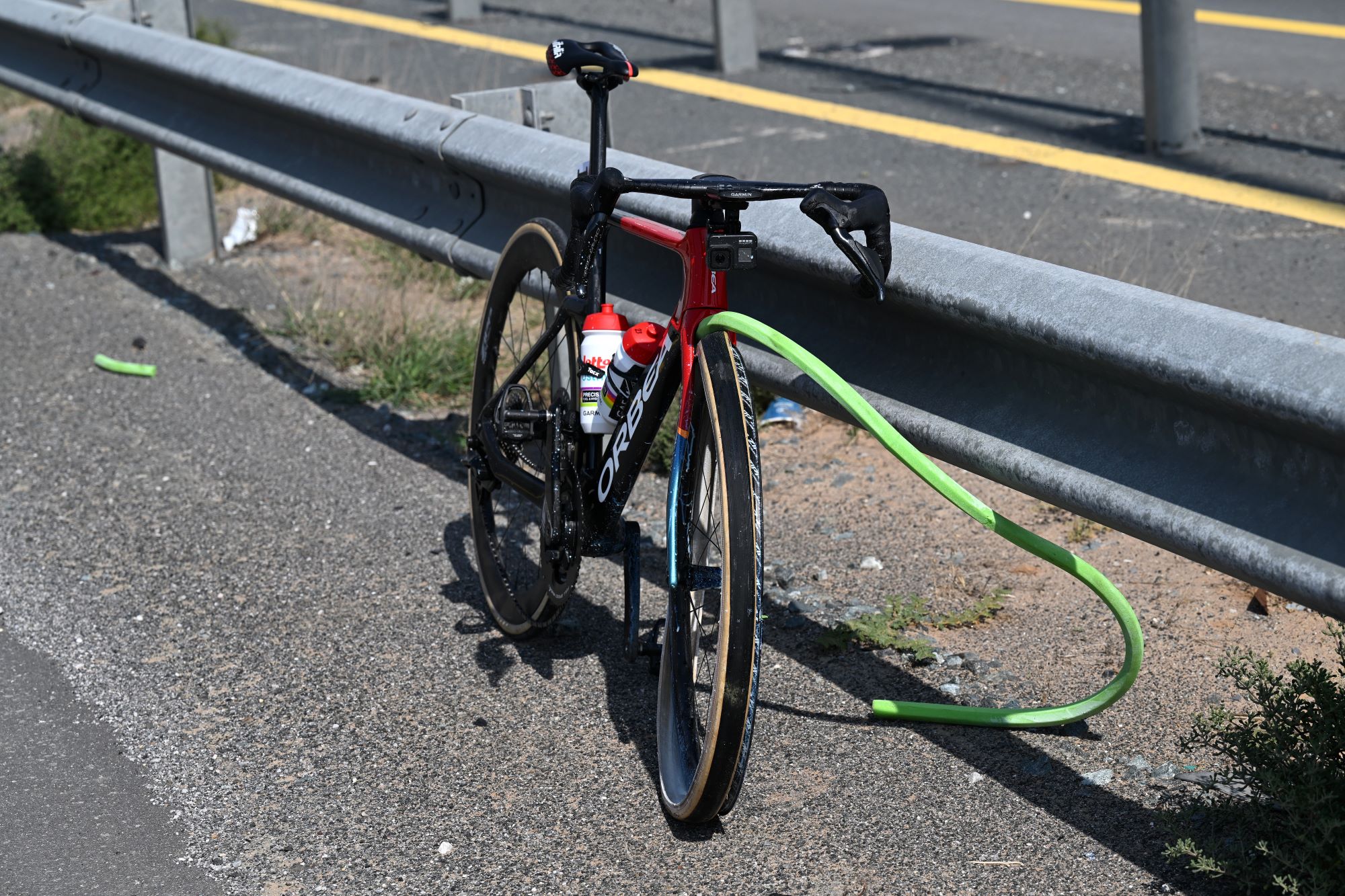 UCI to review hookless rims ‘as a matter of urgency’
UCI to review hookless rims ‘as a matter of urgency’Review follows Thomas De Gendt’s heavy crash at men’s UAE Tour
By Tom Thewlis
-
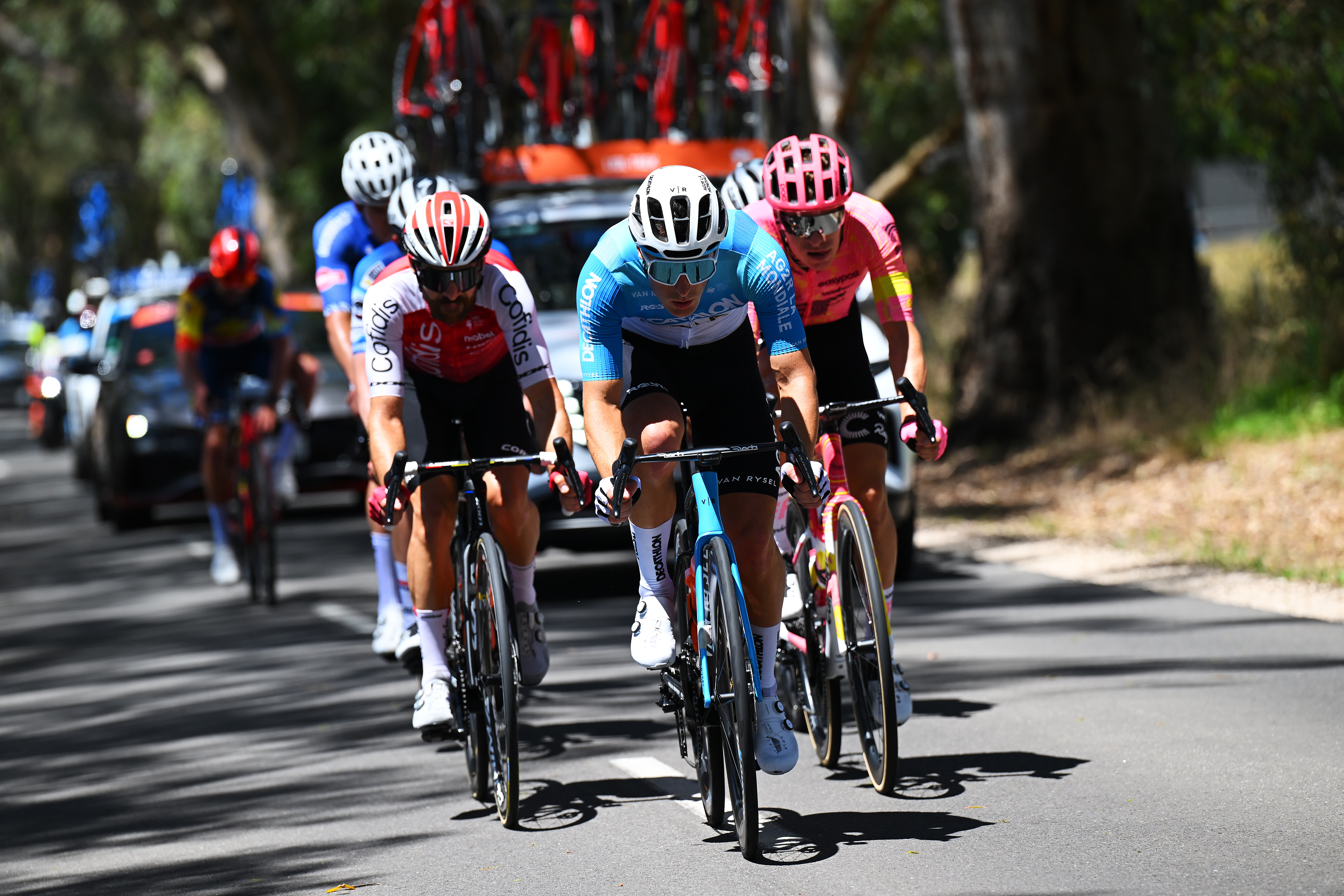 French WorldTour pro cyclist suspended for anti-doping ‘abnormalities’
French WorldTour pro cyclist suspended for anti-doping ‘abnormalities’Franck Bonnamour's biological passport is under investigation by the UCI
By Tom Davidson
-
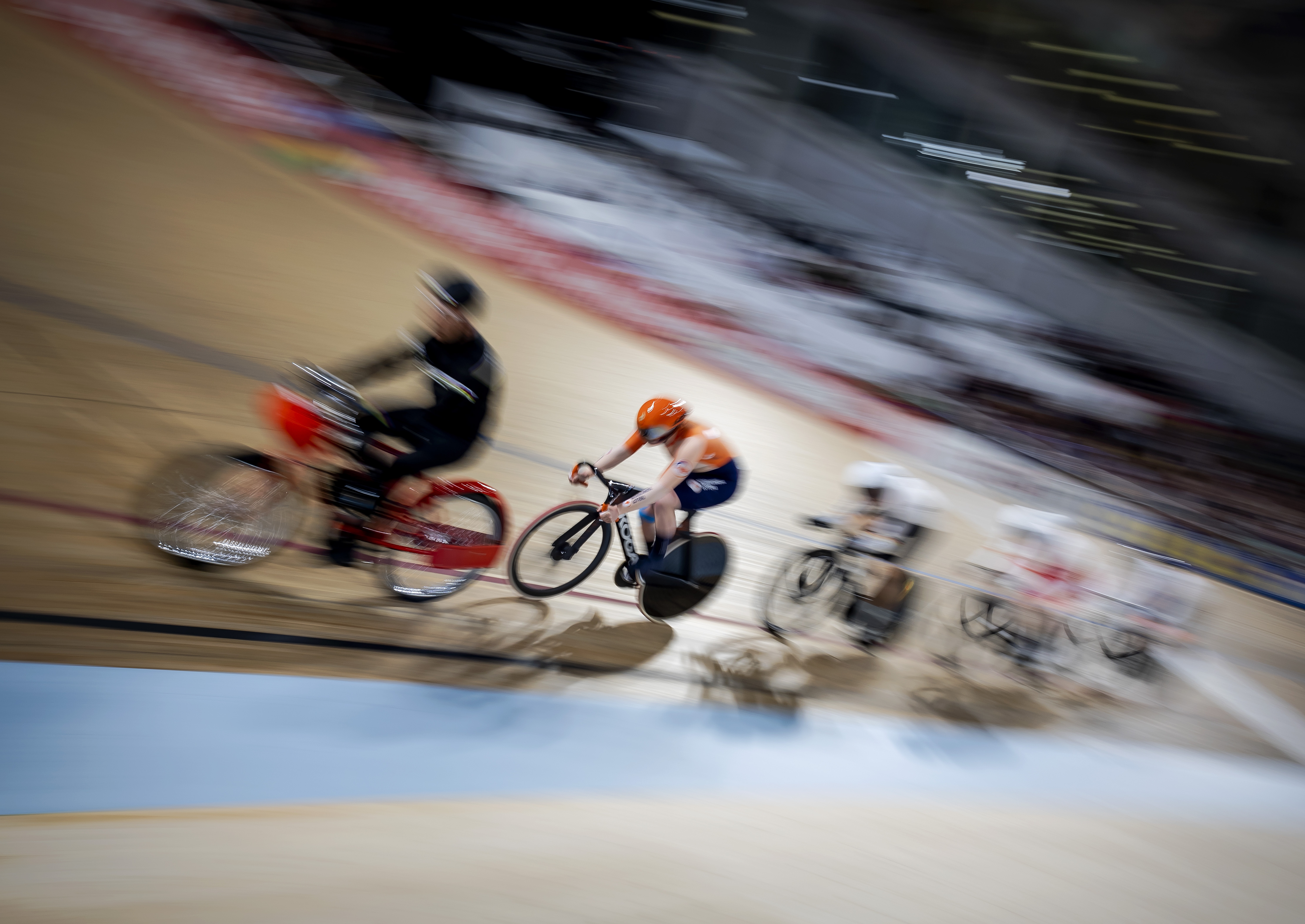 UCI rules new track cycling series a ‘forbidden event’ and threatens to fine riders
UCI rules new track cycling series a ‘forbidden event’ and threatens to fine ridersRiders are at risk of fines and suspension if they compete in the planned DerbyWheel
By Tom Davidson